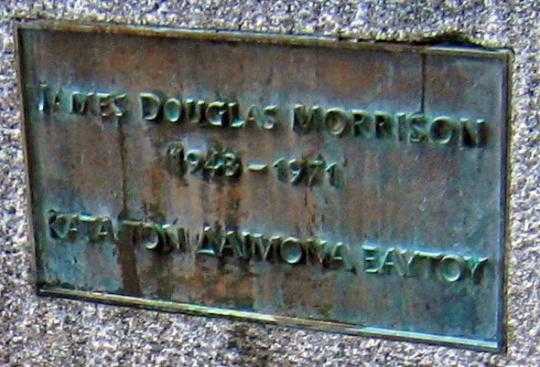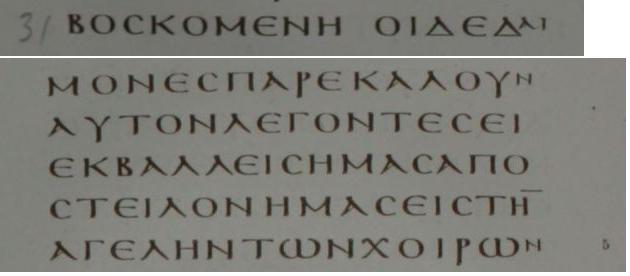
 |
Freethought & Rationalism ArchiveThe archives are read only. |
|
|
#81 | |
|
Veteran Member
Join Date: Nov 2005
Location: United Kingdom
Posts: 3,619
|
Quote:
My advice to anyone with a good research idea [by ‘good idea’ I mean only that the idea might eventually be born as a paper for publication] is never to discuss his idea with anybody, but only with the adviser. We are not in an academic department and there is no adviser to help you, but Andrew Criddle and Spin would qualify as suitable advisers if they are interested in teaching. The subject you have chosen requires the input of people like them. I should mention that in my experience only 1 in20 of the ‘good ideas’ are eventually read as an article in a professional magazine. Enjoy. |
|
|
|
|
|
#82 |
|
Veteran Member
Join Date: Sep 2003
Location: On the path of knowledge
Posts: 8,889
|
I tend to think even a fully trained Greek reading and speaking literate scholar would have a tough time presenting a persuasive or comprehensible presentation on this one. Has anyone ever? That should tell you something.
But what do I know, most Greek is nothing but Greek to me. I can only hope that one of these days I'll finally wise up enough not stick my foot into that muck again. Best wishes however to whomever wants to wade into it though ......better tie a strong line around your waist, and make sure it is securely tied to a solid fence post before entering that pen. Oh and do take care, .....those swine in there have been known to trample, and have already eaten many men alive. . |
|
|
|
|
#83 |
|
Banned
Join Date: Sep 2011
Location: middle east
Posts: 829
|
Thank you Pete, for a wonderful thread. Informative, interesting, provocative, and with outstanding contributions from Iskander, Shesh, and others.
Earlier, you had inquired about capital letter versions of the Greek word δαίμονες which appears in Matthew 8:31 and 33. Here it is: Codex Sinaiticus of Matthew 8:31 I am not quite clear why the reference you gave, above, indicates that this text is "corrupted". The key word, apparently, is παρεκάλουν, which (as I understand it) represents, in English, "begged", or "besought", NOT "command", as is indicated by your source, Pete. So, I cannot understand the reason for your author claiming that Codex Sinaiticus is corrupt. I do understand that your author is offended by the notion that the "demons" would "command" Jesus, but, I fail to observe such a relationship, expressed in the text of Codex Sinaiticus. This is one of the most informative, and useful, as well as entertaining, threads to appear on this forum, and you are to be congratulated for introducing it. I certainly agree with you, that the particular question of transformation of "Daimon" to represent "evil god", from the classical Greek notion of God or Goddess, without bias towards evil conduct, is a significant issue, and the answer to the question of how that transformation occurred, may well offer some clues as to the origin of Christianity. You have hit on a brilliant question, and the answer I think is going to require more than the outstanding explanation by Shesh regarding Jewish notions of "shaddi". In particular, I do not imagine any solution to this question, without input from someone fluent in middle Persian, for, I believe, that the transformation from classical Greek (Gods) to Koine Greek (Evil Gods) involves more than an understanding of the Masoretic text, interesting as that latter issue is, itself, as both Stephan and Sheshbazzar have outlined. It may be that even the pure (?) Masoretic text (possibly itself corrupted, during the Babylonian sojourn) is unhelpful in understanding why the gospel authors treated Daimon as an exclusively pejorative term. 
|
|
|
|
|
#84 | |||||
|
Contributor
Join Date: Mar 2006
Location: Falls Creek, Oz.
Posts: 11,192
|
Quote:
 I will check whether this appears in Vaticanus in a cupla days. Thanks for all comments and questions These will be returned to. Quote:
εὐδαιμονία | eudaimonia |
|||||
|
|
|
|
#85 | |
|
Contributor
Join Date: Jun 2000
Location: Los Angeles area
Posts: 40,549
|
That particular tombstone is the subject of comment here
Quote:
|
|
|
|
|
|
#86 |
|
Veteran Member
Join Date: Jun 2010
Location: seattle, wa
Posts: 9,337
|
From what I remember of Pokorny deva has a similar history in the transfer from Sanskrit to Persian. Zarathustra was the first to "demonize" demons
|
|
|
|
|
#87 | |
|
Veteran Member
Join Date: Nov 2005
Location: United Kingdom
Posts: 3,619
|
Quote:
http://www.greekbible.com/ The alphabet + http://www.motorera.com/greek/lessons/lesson01.html http://biblescripture.net/Greek.html |
|
|
|
|
|
#88 | |
|
Contributor
Join Date: Mar 2006
Location: Falls Creek, Oz.
Posts: 11,192
|
Quote:
To return to the OP, the claim being investigated is that one of the more central intellectual concepts in nearly all Greek philosophical and theological schools was the "daimon" - the "guardian spirit of [individual] men" which existed as an intercessor, and guide to the cosmos. I have yet to check what Vaticanus attests to, but on the surface of things the gospel authors appear to have purposefully cast this old concept to the swine, while within the same propaganda (i.e. the gospels) at the same time, raising a newly rebadged and very specific concept of the "Holy Spirit" to take its place. |
|
|
|
|
|
#89 | |||
|
Contributor
Join Date: Mar 2006
Location: Falls Creek, Oz.
Posts: 11,192
|
We are looking for the capitalized version ΔΑΙΜΟΝ of δαίμων in Codex Vaticanus.
These LINKS are to Codex Vaticanus (1) Mat 8:31 Quote:
 Note that the very first line is derived from the final line in column 2 and the next lines are from the top of column 3. The word ΔΑΙΜΟΝ appears to be attested. Any comments on this? (2) Mar 5:12 Quote:
 Is the word ΔΑΙΜΟΝ attested? Any comments on this? (3) Luk 8:29 Quote:
 Is the word ΔΑΙΜΟΝ attested - or is this an instance of "daimonion" (contra Blueletter)? Any comments on this? General Questions Sorry about the whitespace in the last 2 images. Is there any easier way to check this? Are there any Greek texts for Vaticanus, Sinaticus, Alexandrinus for these three specific gospel references? Andrew you mentioned that only the Matt reference was without question. Where did you get this information? What source did the blueletter bible use to return these three references? Had the gospels had the term δαιμόνιον ("daimonion") consistently throughout the NT (or NT/LXX) this OP would not have been raised. So the most important thing to check about is that the Vaticanus reads δαίμων and not δαιμόνιον Any assistance would be appreciated. Thanks. εὐδαιμονία | eudaimonia |
|||
|
|
|
|
#90 | |||
|
Contributor
Join Date: Mar 2006
Location: Falls Creek, Oz.
Posts: 11,192
|
Quote:
daimonion gives "divine Power, Divinity". This seems a more general term. The key to understanding the differences is seeing how the terms are used by writers in antiquity. The former term daimon has a great wealth of use. One example is from Epictetus (55–135 CE) who may have influenced Hadrian, but certainly influenced Marcus Aurelius. The following from The Discourses Quote:
This concept is also found in Marcus Aurelius, who's books circulated prior to Nicaea. While the Platonists and the Stoics may be differentiated into two distinct schools, certain philosophical concepts were shared. Quote:
I suspect that the changes in meaning happened over time after the new testament was adopted as the Holy Writ of the Roman State Church. The Christian Church looked down on the Greek conception of personal divinity. The Gospel authors appear to have deliberately redefined a new and consistent meaning, reducing it to an "evil demon'. The concept of the Holy Spirit rises, while that of the "guardian spirit" falls The Gospel writers appear to have been engaging in the denigration of the concept of the "daimon" as part of their overall program of propaganda to write about the new and strange formulation of the "Holy Spirit" of Jezus. Did the gospel authors conspire against the pagan idea of the "guardian spirit" in secret and then purposefully infect the new testament with a virus that was lethal to any future use of the "daimon" as anything else other than an "evil demon"? Or were these authors just inspired by the Holy Spirit to write about the "daimon" as they did? Alternately perhaps the editor of the earliest bible codices (Eusebius, or his preservers and or continuators) interpolated the gospels in order to effect one small step against the "daimon", and one giant leap for the "Holy Spirit"? In the very least I think that this example demonstrates some of the propaganda that the new testament has within it. And how that propaganda has been insidiously entrenched in the minds of people with a "Christian education". εὐδαιμονία | eudaimonia |
|||
|
|
| Thread Tools | Search this Thread |
|